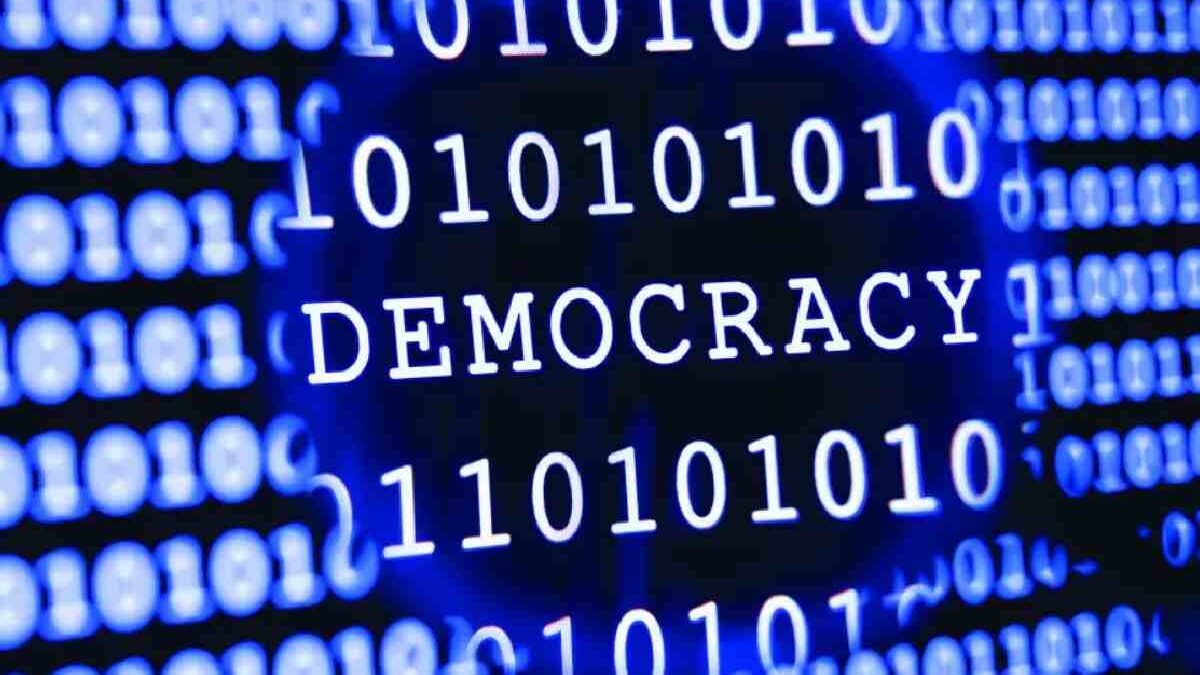The end of the year has accelerated the negotiations on several data regulation packages that will be crucial for the future of the technology. Platform market in the European Union to know how to deal with the growing amount of disinformation, hate speech, or illegal content. data-and-democracy
on social networks or transparency or restrictions on the use of personal data. The Digital Markets Act – DMA – is the final amendment in the European Parliament this week; the national representatives are at the end of November.
The Council of the EU fixed on a common position on the Digital Services Act – DSA -. Which will speed up the Parliament process. Just two weeks ago, Council and Parliament reached a tentative agreement on the final text of the Data Governance Act – DGA-Data-and-Democracy
These topics may seem distant or too legal, but they are not. The reason for their further development is not only a market reason. And it also has to do with supporting democracy and how.
The data of European citizens (both from non-European and European institutions) is secured, processed, used, and protected. That means civic trust and democratic legitimacy.
Table of Contents
From opportunity to the necessity
A particular case is the Data Governance Act. It’s one of the least heard of regulations, but its impact can be significant. The goal of the DGA is to create robust mechanisms to facilitate the re-use of certain types of data from the public sector.
Increase trust in data switching services (i.e., which bodies are the “bridges” through which all data flows) and encourage data altruism across the EU.
The first has to do with the excellent recycling of data that the public sector owns and is subject to other people’s rights.
This includes everything from trade secrets and intellectual property to personally identifiable information that the government collects.
The law proposes that these data can only be reused in very exclusive cases, was justified and necessary for delivering a service of general interest, and for a limited time.
Therefore, the challenge is to define what service of general interest means, which has not yet been determine and will be fundamental from a democratic point of view, in other words.
If issues define the general interest (e.g.Reusing the data of all European citizens to improve the services of an essential sector – like healthcare – across the EU). Or if the general interest will be deciding on a group basis (e.g., re-use of data from a vulnerable group – e.g.
Unemployed over 45 years old) allow public policy to be improving in favour of the general interest. Or if the steps of the Community proposal for the Artificial Intelligence Law are followe.
A risk-base approach is taken; a case-by-case supervisory model, like the American one, or a rights-based approach advocated by civil society organizations like AccessNow.
Data altruism Data and Democracy
It does not consider that data altruism is the other way around: that the data manage by intermediary services can be use openly for citizens to analyze and study the social impact on public policies.
Social cohesion and democratic quality. According to the DGA, data altruism organizations must be form for “general interest purposes” (e.g., medical research). However, the concept remains ill-defined.
There is an opportunity to extend the data panel to include social organizations – such as international NGOs with national groups in Europe working on children’s rights. Think tanks – to analyze the data with measure and provide reports with constructive recommendations – or conduct academic research.
Teams on topics not necessarily of general interest. This is twofold: it is a democratic issue of transparency.
But it would allow both the more mercantilist perspective and the more public service. Perspective alike to improve the data analysis to understand. If there is any overlap of resources and other efficiency and distribution issues.
When geopolitics and democracy go hand in hand
The proposals made over the last year are both an opportunity and a need. European Union has met with great speed and satisfaction in recent months.
And he doesn’t do it by accident. They strive for all legislative packages to be link as much as possible. But it’s also a way of presenting a solid schedule to the multilateral negotiating chambers that it launches with other countries.
This is the case with the Trade and Technology Council. With which the EU has already made apparent which issues it does not want to address. Including the DSA and the DMA. Also, with digital partnerships with India and Japan.
It seeks cooperation and mutual benefits in connectivity. In the use of technologies, and in the convergence of data regulations to facilitate cross-border data movement securely.

